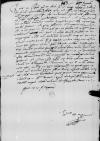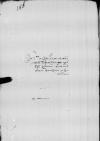Ob ea, quae mihi
ill(ustrissimus) or ill(ustris)⌈ill(ustrissimus)ill(ustrissimus) or ill(ustris)⌉ dominus Albrecht I von Hohenzollern-Ansbach (Albrecht von Brandenburg) (*1490 – †1568), 1511-1525 Grand Master of the Teutonic Order; from 1525 to his death Duke in Prussia as a liegeman of the Polish king; son of Friedrich V of Brandenburg der Ältere and Sophia Jagiellon (daughter of Casimir IV Jagiellon), nephew of Sigismund I, King of Poland; founder of the university in Königsberg (1544)⌊dux vicinus nosterAlbrecht I von Hohenzollern-Ansbach (Albrecht von Brandenburg) (*1490 – †1568), 1511-1525 Grand Master of the Teutonic Order; from 1525 to his death Duke in Prussia as a liegeman of the Polish king; son of Friedrich V of Brandenburg der Ältere and Sophia Jagiellon (daughter of Casimir IV Jagiellon), nephew of Sigismund I, King of Poland; founder of the university in Königsberg (1544)⌋ cf. Albrecht I von Hohenzollern-Ansbach to Ioannes DANTISCUS Königsberg, 1539-03-09, CIDTC IDL 4945⌊scripsitcf. Albrecht I von Hohenzollern-Ansbach to Ioannes DANTISCUS Königsberg, 1539-03-09, CIDTC IDL 4945⌋, nempe de retentione apud nos frumentorum, cuius rei superinscribed⌈reirei superinscribed⌉ sibi assumpsit auctoritatem, maxime autem, quod ex Königsberg (Królewiec, Mons Regius, Regiomontium), city in Ducal Prussia, on the mouth of the Pregel (Pregoła) river, capital city of Ducal Prussia; today Kaliningrad in Russia⌊suo portuKönigsberg (Królewiec, Mons Regius, Regiomontium), city in Ducal Prussia, on the mouth of the Pregel (Pregoła) river, capital city of Ducal Prussia; today Kaliningrad in Russia⌋ nullam nostratium navium frumentis oneratam exire permittere statuit, de quo plurimum Citizens of Elbing ⌊ElbingensesCitizens of Elbing ⌋ conqueruntur, et alia, quae in litteris ad se, ni fallor, Dominatio Vestra Reverendissima leget, videretur itaque mihi, cum et Council of Royal Prussia the most important local authority in Royal Prussia. It consisted of two bishops (of Ermland (Warmia), who served as the Council’s president, and of Kulm (Chełmno)), three voivodes (of Kulm, Marienburg (Malbork), and Pomerania), three castellans (of Kulm, Elbing (Elbląg), and Gdańsk (Danzig)), three chamberlains (of Kulm, Marienburg, and Pomerania), and representatives of the three Great Prussian Cities – Gdańsk, Thorn (Toruń), and Elbing (ACHREMCZYK 2016, p. 17-18)⌊aliis dominisCouncil of Royal Prussia the most important local authority in Royal Prussia. It consisted of two bishops (of Ermland (Warmia), who served as the Council’s president, and of Kulm (Chełmno)), three voivodes (of Kulm, Marienburg (Malbork), and Pomerania), three castellans (of Kulm, Elbing (Elbląg), and Gdańsk (Danzig)), three chamberlains (of Kulm, Marienburg, and Pomerania), and representatives of the three Great Prussian Cities – Gdańsk, Thorn (Toruń), and Elbing (ACHREMCZYK 2016, p. 17-18)⌋ scribat, ut in responsione unam omnes sententiam teneremus neque cum hoc messenger of Ioannes DANTISCUS ⌊nuntiomessenger of Ioannes DANTISCUS ⌋ aliud rescriberemus, quam quod habito mutuo inter nos consilio simus per proprium nuntium, quem libenter mittam, responsuri, nisi saniori iudicio quippiam aliud fieri velit, quod non gravate sequar. Neque incommodum esset, ut et civitatibus ista communicarentur. Mihi in praesens ad nostros Gdańsk Town Council ⌊gentiles GdanensesGdańsk Town Council ⌋ est messenger of Ioannes DANTISCUS ⌊nuntiusmessenger of Ioannes DANTISCUS ⌋, quibus exemplum ex litteris ad me mittam, itidem et Elbing Town Council ⌊ElbingensibusElbing Town Council ⌋. Thorn Town Council ⌊ThoronensesThorn Town Council ⌋ in iis Dominatio Vestra Reverendissima commonere potest. Velimque sic rem temperaremus, ne opus esset, ut suos ad Provincial Diet of Royal Prussia ⌊conventum proximumProvincial Diet of Royal Prussia ⌋ ill(ustrissimus) or ill(ustris)⌈ill(ustrissimus)ill(ustrissimus) or ill(ustris)⌉ Albrecht I von Hohenzollern-Ansbach (Albrecht von Brandenburg) (*1490 – †1568), 1511-1525 Grand Master of the Teutonic Order; from 1525 to his death Duke in Prussia as a liegeman of the Polish king; son of Friedrich V of Brandenburg der Ältere and Sophia Jagiellon (daughter of Casimir IV Jagiellon), nephew of Sigismund I, King of Poland; founder of the university in Königsberg (1544)⌊dominus duxAlbrecht I von Hohenzollern-Ansbach (Albrecht von Brandenburg) (*1490 – †1568), 1511-1525 Grand Master of the Teutonic Order; from 1525 to his death Duke in Prussia as a liegeman of the Polish king; son of Friedrich V of Brandenburg der Ältere and Sophia Jagiellon (daughter of Casimir IV Jagiellon), nephew of Sigismund I, King of Poland; founder of the university in Königsberg (1544)⌋ Envoys of Albrecht I von Hohenzollern-Ansbach ⌊nuntiosEnvoys of Albrecht I von Hohenzollern-Ansbach ⌋ mitteret nosque cum illis novos tractatus, quos quaerit et a me seorsum postulat on the margin⌈et a me seorsum postulatet a me seorsum postulat on the margin⌉, inire cogeremur written over s⌈srr written over s⌉. Sententiam Dominatio Vestra Reverendissima tenet.
Quam diutissime feliciter valere ex animo cupio.


 BCz, 245, p. 146
BCz, 245, p. 146